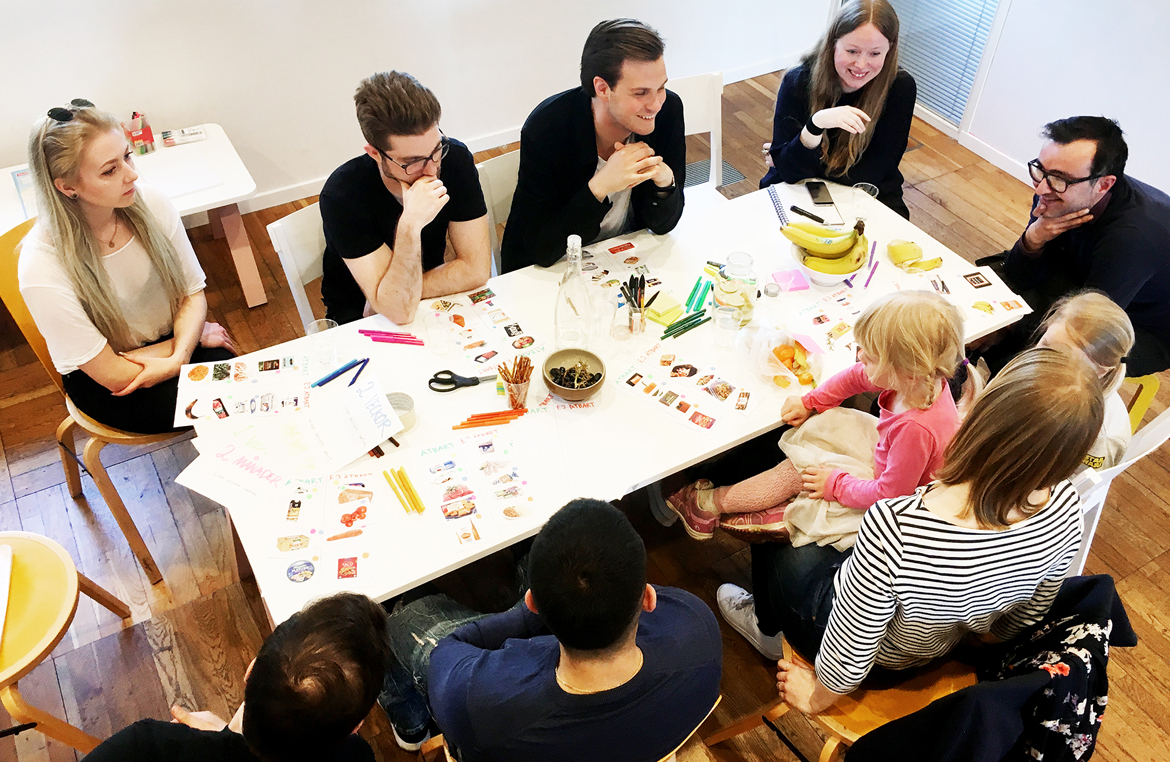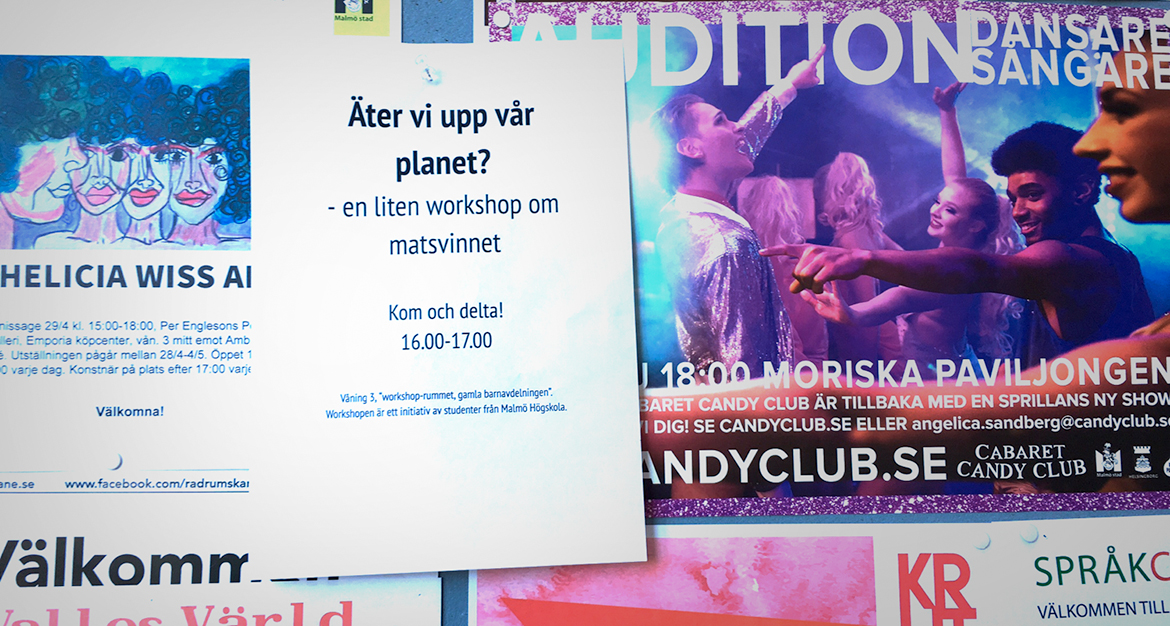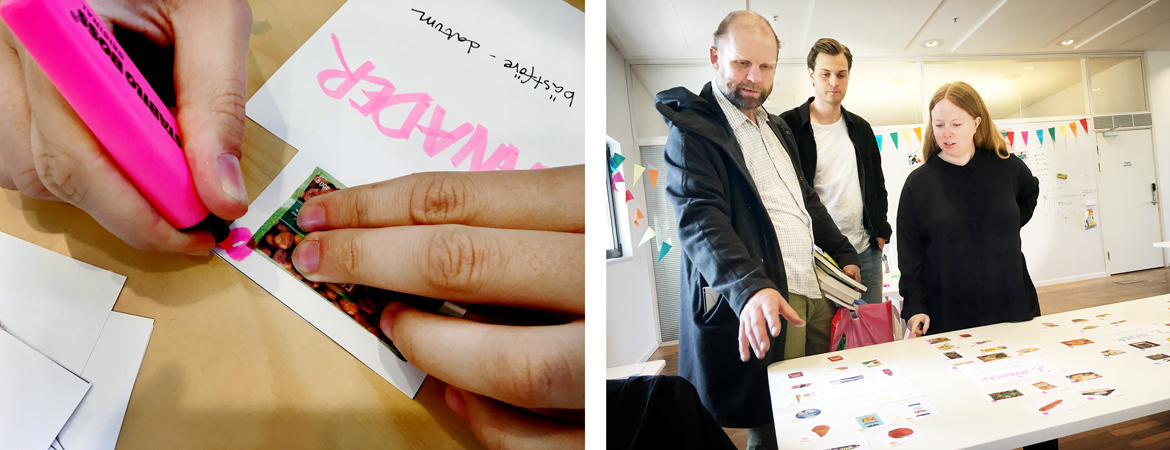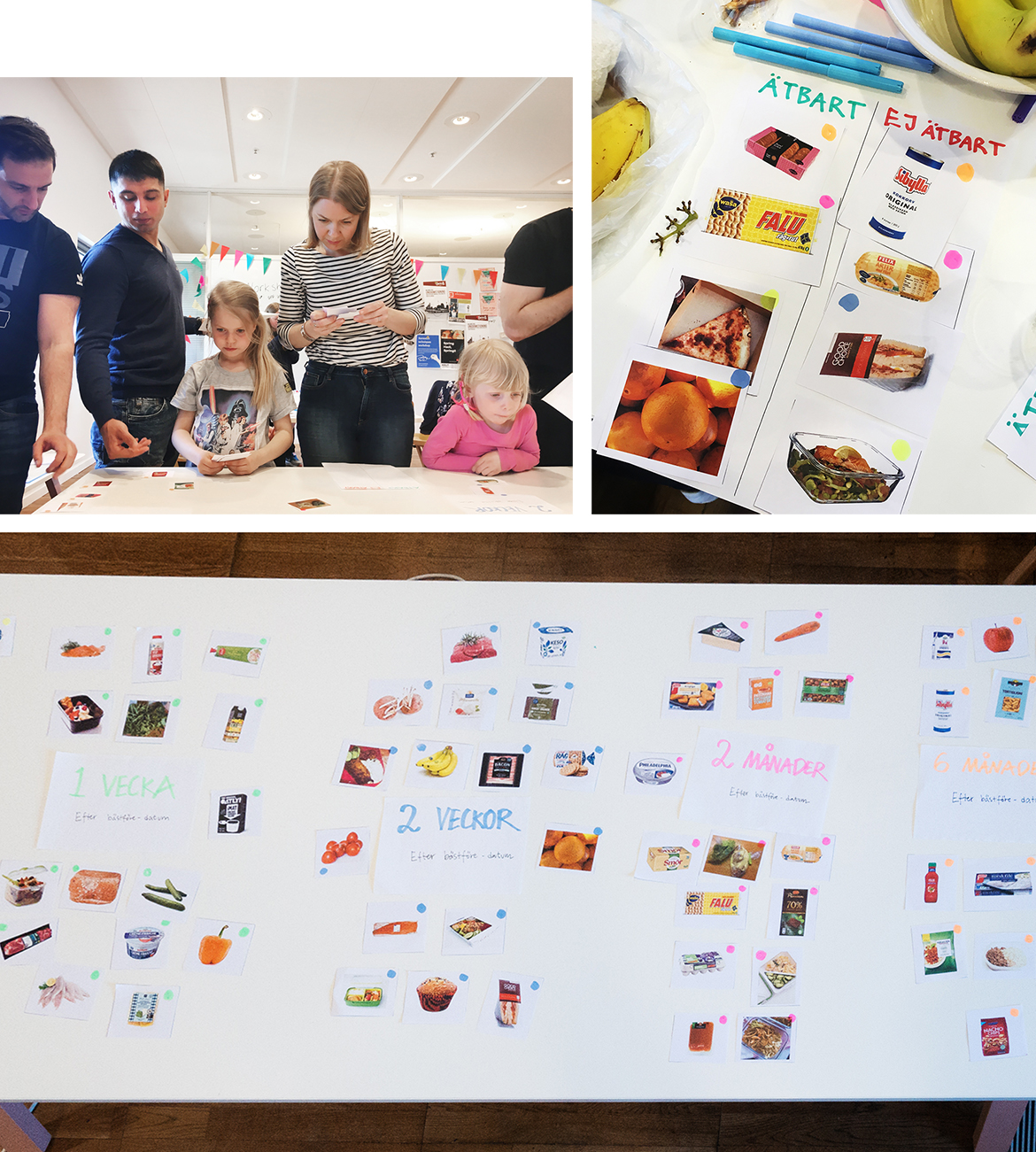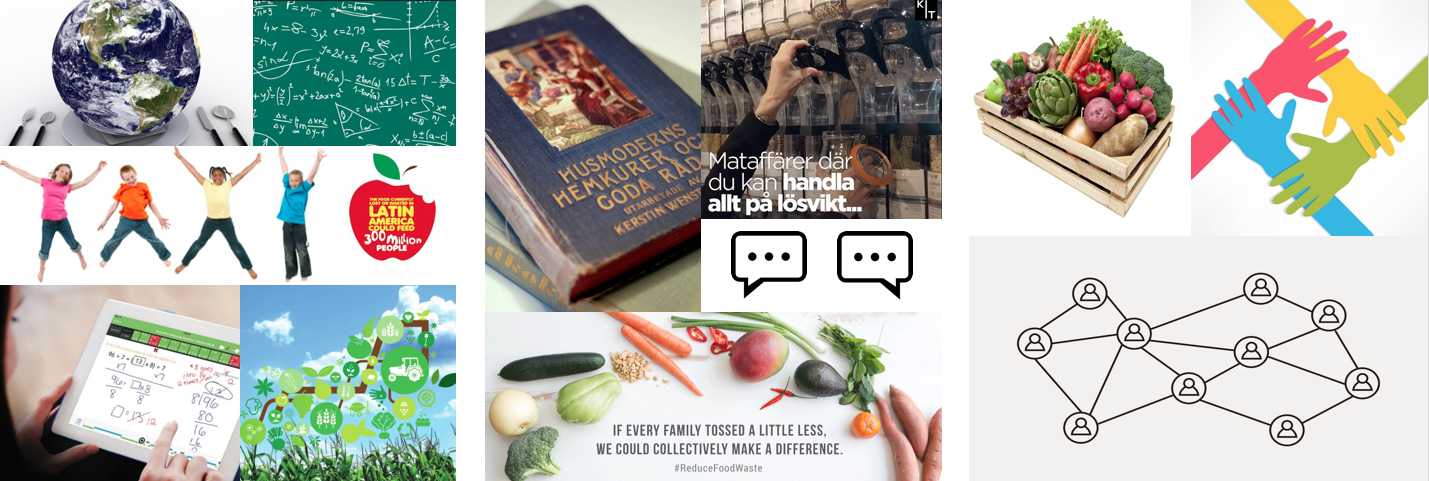Food waste
Course: Methods in Interactionsdesign II
Project length: 2 weeks
Groupwork: 3 students
My role: Project management, Ideation, Visual documentation, Co-leader of the workshop
Materials: Coloured pens, whiteboard pens, post-it, A4 papers, tape, stickers, flip charts,
pictures of food. Workshop-facility at Malmö City Library
INTRODUCTION
In the course Methods in Interactionsdesign II, me and two other students chose to work with the subject of food waste. According to Naturvårdsverket the amount of food waste per year in Sweden rises up to 1,3 tons. That means an average of 134 kilos per person. In order to look further into possible ways of dealing with food waste and to get new design insights we conducted a focus group workshop at Malmö City Library. We invited a wide range of different people in terms of age, background and occupation, and a start up company working with food waste to participate. What I learned by doing this project was how to research, and with small means, create and perform a workshop in a public environment, that was relevant for the subject participants. It was successful in that we uncovered attitudes, design insights and feelings around food waste that we otherwise would not have had access to but was crucial for our design choices.
OUR DESIGN PROCESS
Are We Eating Our Planet? Brainstorm and initial research.
We started our initial research by having a brainstorm around different aspects of food waste, environmental issues, economy, food industry profits, and the moral issues of throwing food away. We asked questions such as: Could awareness and lack of information be an issue? How do we interpret the “best before”-date on products? What about the ethics of dumpster diving, is it legal to collect food from trash containers? If illegal, is it still the right thing to do from an ethical point of view?
Also we found some initial research done by the The Swedish Retail and Wholesale Council from a business point of view and looked at existing solutions and local initiatives (successful apps like Karma and ResQ was not out in the market at the time of this research).
Organising our workshop and engaging participants
In order to get access to an open space where the participants could easily and spontaneously join in I contacted the staff at Malmö City Library, to see if they could support our project with facilities for our workshop. Together we found an open space with a table and whiteboard that suited our purposes perfectly. In order to find participants, we contacted several companies, local Facebook groups engaged in our cause, and friends. We also put up a poster about the event at the library, hoping to engage visitors to join in.
The Workshop
During the workshop my role was to take notes and to document the workshop by taking pictures and film making, and also co-leading it asking complementary questions when needed. Other roles were Moderator and a Participatory guide. While we were preparing visitors also came up to us eager to discuss food waste.
In the end we managed to get eight participants to join our workshop. The workshop consisted of an initial meet and greet, whre the participators told about why they wanted to join, their favourite food, and what food they had thrown away lately and why. Then we started our initial exercise.
- We had eight categories of food (vegetables, meat, fish, dairy products, micro food, lunch box, bread and cookies, ready products).
- 12 pictures in each category with different “best before”-dates.
- All pictures in each category gathered on a table.
- The participants picked 8-10 cards and then placed them in the order they would be ok eating them in. Thereafter they were asked to motivate their choices.
This lead to a great discussion, pinpointing different ideas and attitudes concerning food and when its eatable or not.
“Green potatoes are toxic, they will kill you!…I’m sorry, I checked it up. They don’t kill you but they can make you sick… “
Next activity was letting our participants answering the following open ended questions:
- When I’m at a restaurant and get left overs I…
- When I see other people throw away food I…
- If someone I know offer me food they don’t need I…
That got us som interesting quotes:
Question 1 “…I don’t ask for a doggy bag. I think it’s not a part of our culture.“
Question 3 “…gladly receive it, but only if it’s from someone I know.”
Data analysis
We analysed our findings creating a affinity diagram, collecting interesting opinions and quotes, studying photos and videos from the workshop.
Insights
Altogether, the workshop resulted in us getting new insights about people’s various feelings and attitudes to food and food waste, and how these are related to different cultural norms. Also, it evoked new thoughts concerning intimacy in regards to food. Food is something that you share with particular people, which also means that it can be more difficult to be part of a circular flow of food sharing with someone you do not know. Furthermore, we learnt that there are a lot of preconceptions about food sustainability. Lack of knowledge or facts leads to individual ways of deciding if food is edible or not.
Design openings
This course focus was to focus in user related knowledge in a focus group context. We found three main design openings to empower knowledge, culture and driving spirits to go further with.
Do the math: An education tool for school that combine knowledge about food waste and environmental issues with math. Fun mixed with hard facts.
Share knowledge: An app where adults could share tips tricks among themselves. It will focus on lightweight news and have a fun and inspiring content.
Community: Creating an online community platform for both individuals, companies and organisations with high awareness. Resulting in empowering in change of politics and business culture.
